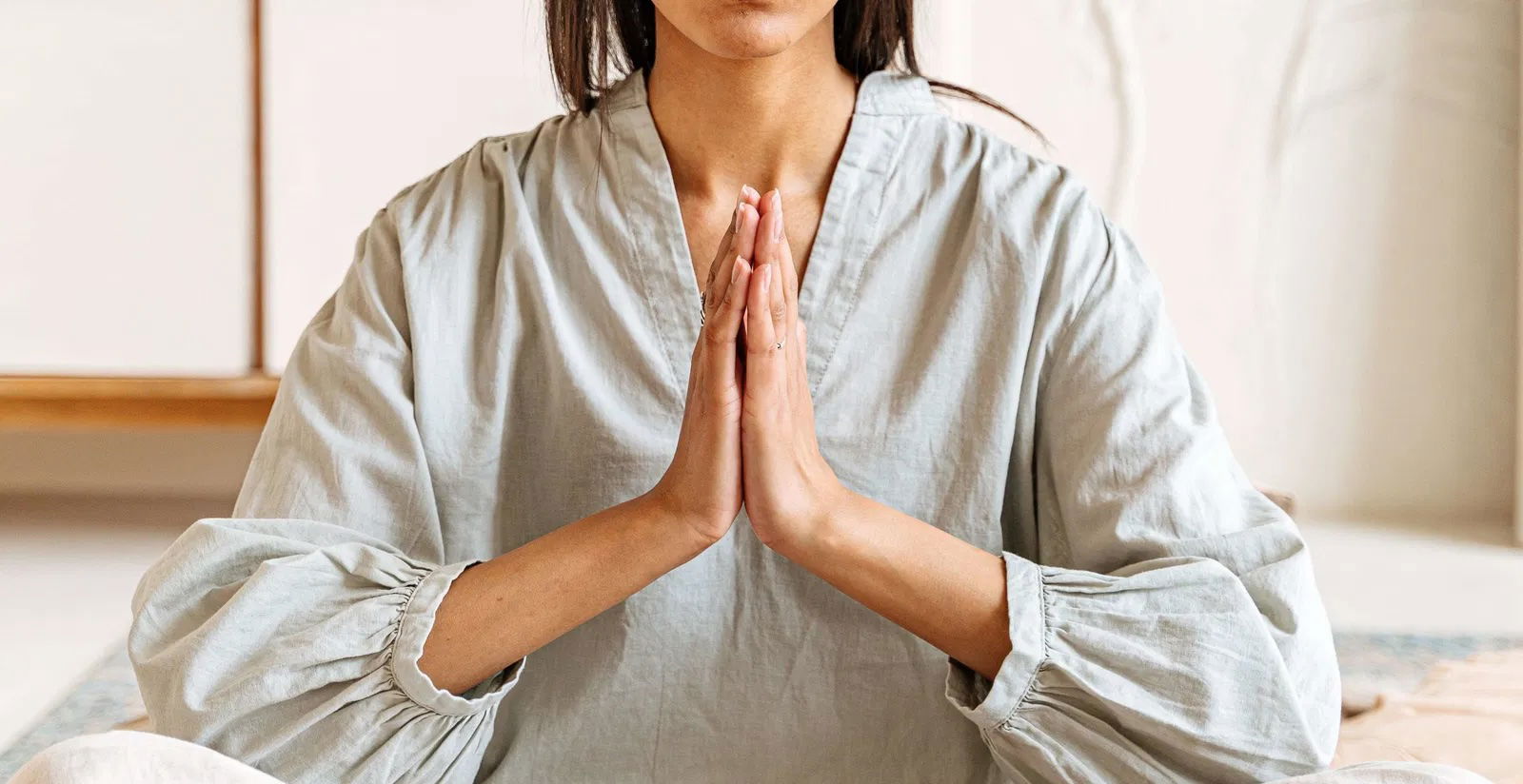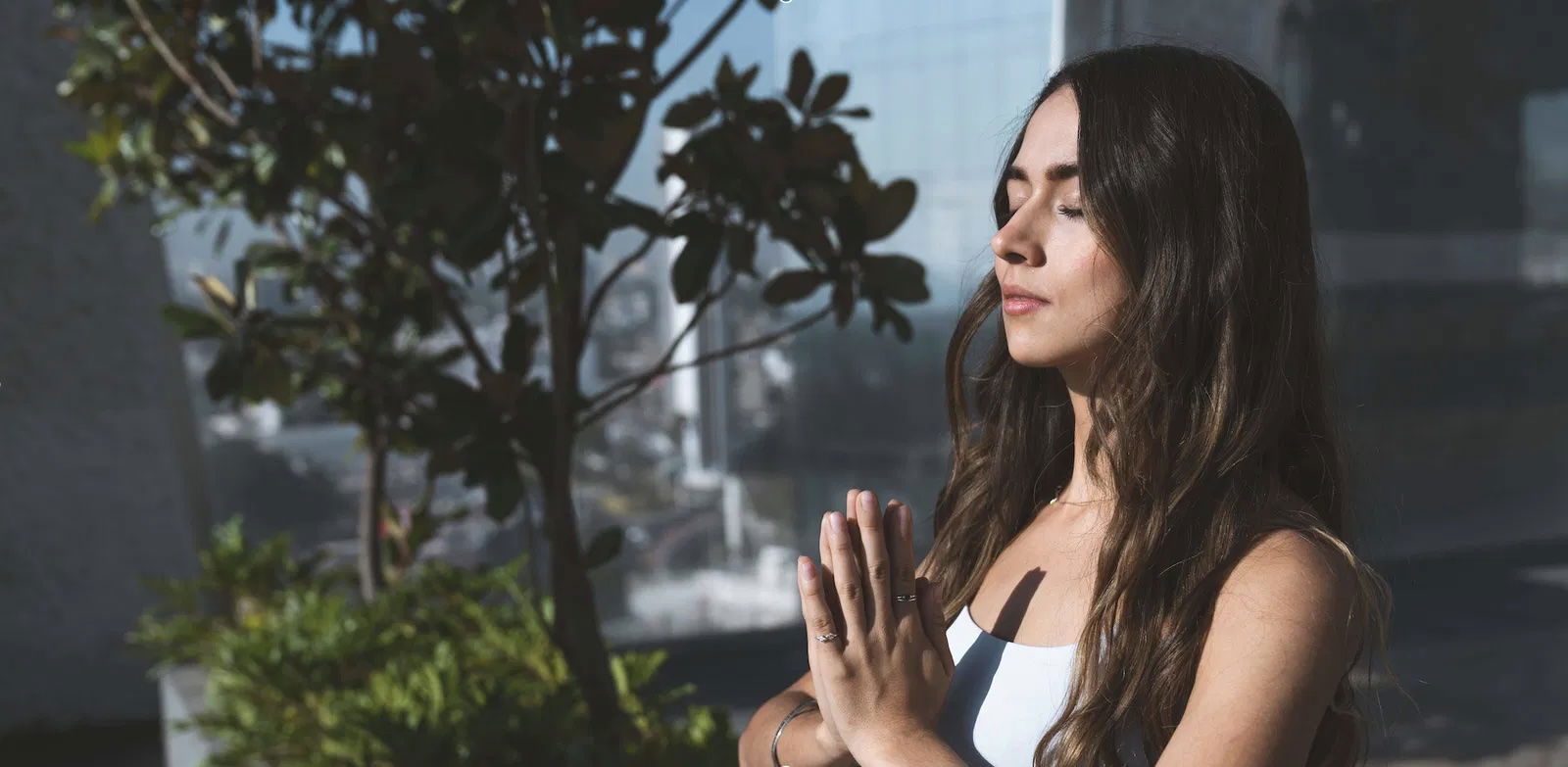If you've ever taken a yoga class, you may have noticed that every yoga teacher ends his or her class with the Sanskrit word namasté. But what is the meaning of namasté really? And why is it said at the end of a yoga class? We tell you what namasté means and what to consider when you use the word yourself.
What does namasté mean?

What does namasté mean?
Namasté actually consists of not one, but two words. Namely "namah" and "te. Namah means "praise," "honor," or "reverent greeting," and te means "for you. Putting the two words together, namasté means 'praise to you' or 'greeting to you.'
Although many of us know namasté from yoga class, this is not where the word originally came from. Namasté was already found in ancient Sanskrit literature, sometime between 1500 and 1000 B.C.
Hindus greet each other with the word namasté, making a hand gesture in the process. Children in India, for example, are taught that namasté is a good way to greet elders. It is actually the same as hello, but with more respect. Namasté is also used to greet the gods. The hand gesture made with namasté is called "anjali mudra. In this, you place your palms together in front of your chest and bend your head slightly toward your palms. Some also greet each other only with anjali mudra, and do not say the word namasté out loud.
Namasté in the West
Namasté in India - in most situations - so simply means "hello" or "welcome. But with the increasing popularity of yoga in the West, it seems like namasté has reinvented itself. Many people don't know what namasté means. Or think the word has a deeper spiritual meaning. In the West, namasté is often translated as: "the light in me, honor the light in you." This is often said at the end of yoga class, to thank the teacher. But this is not how namasté was originally used in India.
How do you use namasté?
May you use the word namasté if you know nothing about the origins of yoga except the physical yoga postures? That's entirely up to you. However, it is important that you understand the meaning of namasté and that you do not give it another meaning yourself. This way you respect the origin of the word. Always remember that you do not have to say anything you are not comfortable with. So you can also simply say "thank you" at the end of the yoga class if it feels more comfortable.

Namasté actually consists of not one, but two words. Namely 'namah' and 'te'. Namah means "praise," "honor," or "reverent greeting," and te means "for you. When you put the two words together, namasté means "praise to you" or "greeting to you."

Namasté is mainly used in India as a greeting. In the West, namasté seems to have taken on a different - more spiritual - meaning. Namasté is often said here at the end of a yoga class and means, "the light in me, honor the light in you."
However, this is not the original meaning of the Sanskrit word.
Written by:



















